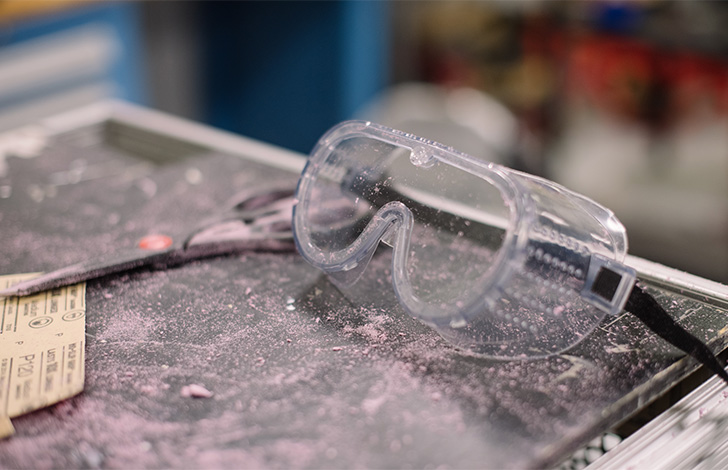Dayton Engineer

Engineering systems for the common good: Theories and modeling to drive solutions and hope
By Raúl Ordóñez, Ph.D. Professor, Department of Electrical and Computer Engineering - Control Systems and Robotics
My love and scholarly passion is control systems – the science of creating mathematical models of things like motors, airplanes, or even the temperature inside a room, and using sensors and feedback to make these systems behave in a desired manner. I learned controls in graduate school and did my Ph.D. dissertation in adaptive control. Ever since, I have been fascinated by the beauty of the math behind control theory, the power of systems thinking, dynamical systems modeling, and the broad and wide applications of systems theory. Because control engineering is so multi-disciplinary, over the years my research has taken me to a number of different applications, from hypersonic aircraft to robotics to artificial lungs and more.
Throughout this time, I had a persistently nagging thought: “Can’t all these powerful engineering tools I’ve learned be used for something other than engineering applications?” Looking at society around me and all the problems we are facing (climate change is at the top of my list, but also environmental injustice, the need for sustainable development, discrimination and inequity, just to name a few), this inner voice has only grown louder. At the same time, so has my frustration, arising from this desire to “do something” but not knowing even where to start.
However, watching my son Kaito grow has helped add hope and focus to this urgency. My wife, Susanne, is an avid advocate for justice, and through her own studies of Human Rights, she has educated me and quite simply opened my eyes to the multiplicity of needs around me, and the corresponding opportunities for concrete action. And luckily, as a member of the University of Dayton community, I have had the good fortune of being exposed to a variety of ideas and initiatives that have slowly helped me find a more concrete focus. The fantastic School of Engineering initiative to create a brand new Human Rights Minor for engineers served as a perfectly timed catalyst. Altogether, I finally found that elusive “something” I had been looking for for so long: Creating a new course, which I am calling Engineering Systems for the Common Good (EGR 419). As a professor who loves to teach, I thought that this would be one of the best things I could do to contribute to the community.
In this class, I will teach how a variety of current issues in society, such as resource depletion, poverty, and environmental justice, are intertwined with the notions of human rights, fairness, and the common good. Being an engineer and a systems scientist, I will teach students how these issues can be understood, analyzed and modeled using systems theory. We will model aspects of the poverty cycle, for instance, or the tragedy of the commons, the occurrence of revolutions and their connection to epidemics, and we will then simulate these models using computational tools. Most excitingly, we will think about solutions: How can policies be modified, how can conditions be changed in such a manner that a more just and sustainable society emerges?
The course will be offered through the Common Academic Program filling the Diversity and Social Justice and the Crossing Boundaries-Practical Ethical Action components. Such an offering will make this course open to all engineering students, as well as those in the sciences and humanities who meet sufficient math (calculus, differential equations, basic signals and systems concepts) requirements.
I realize that I am not the only one who feels the urgency to “do something” and the frustration of not knowing what that “something” is or how to approach it. I can perceive this feeling in young people all around me. It is my hope that students who take this course will understand that all the engineering and scientific knowledge they have acquired can, and should, be used for the common good, in domains that are not necessarily engineering. Students should also feel confident in their ability to actually have a direct, positive impact on this society that we are all a part of; and, most importantly, they will also feel the hope – one that I experience, a hope for a better future for us all.
